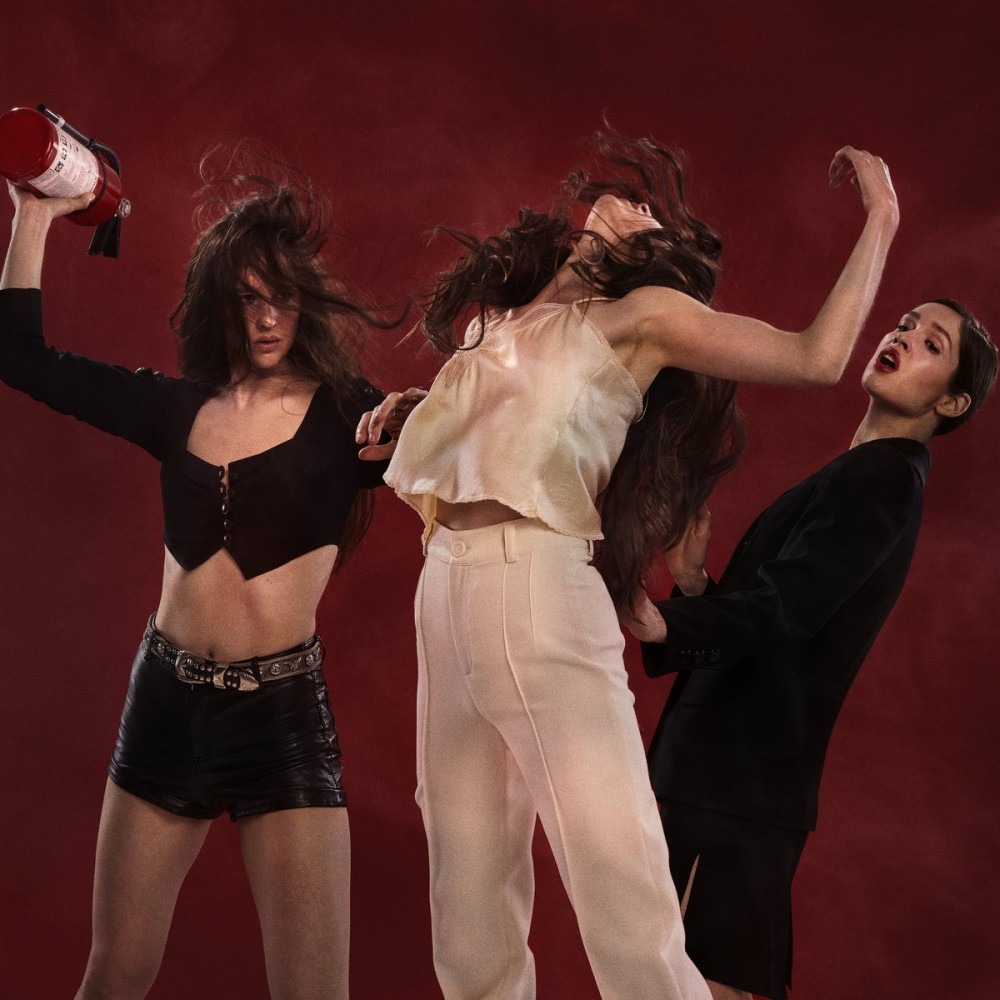In August 2019, Marie Davidson announced she would be turning her back on club music. Years of unforgiving touring schedules had taken their toll on her mental and physical health, and her disaffection with ‘club culture’ – already clear on 2016’s ‘Adieux au dancefloor’ – had intensified. ‘Renegade Breakdown’ sees her and her new group L’Œil Nu blithely try to rediscover the fun in music and collaboration.
Joined by Essaie pas collaborator and husband Pierre Guerineau and Montreal musician Asaël R. Robitaille, the trio explore a hotchpotch of genres: throughout, they throw disco, jazz, rock ballads, French touch and chanson at each other.
This amalgamation is the driving force behind some of the album’s most interesting results. ‘Center of the World (Kotti Blues)’ and its artful old OST groove, and ‘La Ronde’’s singsong motif, taken over by washes of noise and bells, are quick to convince. Others – ‘My Love’, the schmaltzy rhythms of ‘Just in my Head’ and the heavy ‘Back to Rock’ – take more time because they sound so uncool compared to her usually minimal stylings.
Mostly, however, the wide-screen echoes, chorused guitars, slap bass and sometimes cumbersome- sounding chords seem sincere rather than an ironic smokescreen. The crisp 80s chanson influence makes this album sound strangely familiar; this ‘déjà entendu’ sometimes evokes the ambiance of a smoky Parisian bar with a clunky karaoke machine. A considerable step down in intensity, it aims to soundtrack afterparties rather than dancefloors.
This pivot is not as puzzling as you’d think. Davidson has easily transitioned between dim clubs and big festivals and learned to balance her acerbic ‘existential pop’ with hard-nosed techno. Drawing on the former, ‘Renegade Breakdown’’s appeal is in some ways broader, but she also risks putting off some of the initiated.
On the whole, it functions as a reminder of the virtues of going against the grain and not playing it safe. On the title track, she explores ‘the loser’s point of view’ but elsewhere sounds justifiably triumphant about the outcome of the group’s experimentation. The album has an emotional heft that comes from singing about what’s near to the heart (love, loneliness, globe-trotting) and is a fun listen to boot: ‘C’est parce que j’m’en fous’ (‘Because I don’t care’) and single ‘Worst Comes To Worst’ are catchy, sophisticated takes on dancy euro pop.
There is undeniably a tension between these two strands but enough to bring them together, since it is easy to hear the fun that went into making it. The group are like actors playing parts outside their repertoire, giggling after the curtain falls at the strangeness of it all, and then realising, in fact, that they feel comfortable in their new roles. The audience might well twig this.
7/10
Words: Wilf Skinner
Dig It? Dig Deeper! Mylène Farmer, Fleetwood Mac, Lizzy Mercier Descloux
– – –
– – –
Join us on the ad-free creative social network Vero, as we get under the skin of global cultural happenings. Follow Clash Magazine as we skip merrily between clubs, concerts, interviews and photo shoots. Get backstage sneak peeks, exclusive content and access to Clash Live events and a true view into our world as the fun and games unfold.

